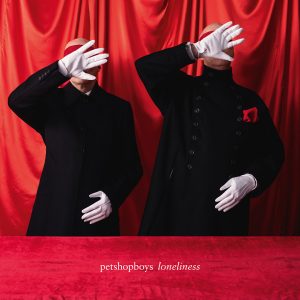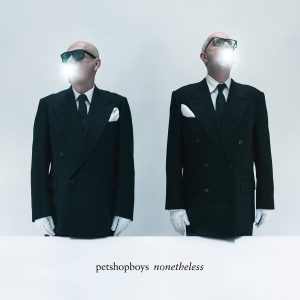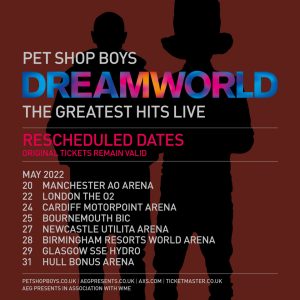Last week I was invited by a charity to contribute to a book of ‘words of wisdom’ I would like to have heard when I was 16. It made me think of a strange experience I had at that age. My parents were on holiday and some friends came over for a party; we stayed up most of the night playing music and fooling around. At about three in the morning someone suggested we had a séance. The letters of the alphabet were written on slips of paper and placed in a circle on the dining room table, a glass put in the centre, upside down. We each placed a forefinger on the glass which magically began to move around the circle spelling out nonsense, apparently of its own volition. Then its movements became more confident; one felt that the glass was pulling our fingers, not being pushed by them.Someone asked: ‘is anyone there?’‘YES’.‘Do you have a message for anyone here?’With sudden fluency: ‘MY DEAR CHILDREN YOU ARE SO YOUNG DO NOT MAKE MY MISTAKES’.‘What is your name?’‘OSCAR WILDE’.A great commotion amongst the adolescents around the table. Oscar Wilde!‘Are you happy?’‘NO.’And he was gone. The glass stopped moving. We were all a bit freaked out. A strong wind was blowing outside. We decided we’d had enough. The letters were gathered in and the glass taken back to the kitchen. I don’t really believe in an afterlife and I suppose someone must have been pushing the glass but I’ve always felt a connection to Wilde since then, as though he’s someone I met once for a brief moment. I recently came across a book called Oscar Wilde in Purgatory, published in the 1920s, which consists of transcriptions of conversations a man called Hester Travers Smith claims to have had with Wilde via a ouija board. In death, as in life, it seems Oscar is a great talker.I see that a guitarist called Joe Satriani is suing Coldplay, claiming that their hit song ‘Viva La Vida’ is copied from a song by him. Yusuf Islam, aka Cat Stevens, has also remarked in an interview that the song sounds like one of his from the 1970s. One of the most ancient clichés of the music business is ‘where there’s a hit, there’s a writ’. In 1987 Jonathan King announced on the radio and in his column in the Sun that our (Pet Shop Boys) song ‘It’s a sin’ was copied from Cat Stevens’s ‘Wild World’. We ended up starting to sue King for libel and he settled out of court in our favour. Yusuf Islam wrote us a very charming letter offering to mediate at one point. We hadn’t stolen ‘It’s a sin’ from ‘Wild World’ and I don’t imagine that Chris Martin of Coldplay has copied his song from either Satriani or Stevens. It is possible to write a song based on a strong, logical chord change with a melody line that follows the chord change and so come up with something new that can coincidentally sound like another song which you may never have heard. For years we used to perform a medley of ‘It’s a sin’ and ‘I Will Survive’ just because the chord changes were so similar. Here’s a great logical chord change for a hit song (it’s been used loads of times): C major with C bass/ D Major, holding the C bass/ D major, moving the bass down to B/ E minor with E bass. You can’t go wrong.‘Art world, music business. What does that tell us?’ asks a character in Geoff Dyer’s recent novella Jeff In Venice. I’ve seen both of them close up and can report that the art world is better at business and throws much wilder parties. It has more confidence than the music business and is more blatantly interested in money. Apparently the chairman of a large multinational record company in London prowls his offices kicking open doors and shouting ‘More hits!’ at his staff. Sounds like Damien Hirst and Keith Allen in the old YBA days.We released a new album called Yes in April. In China it is about to be released but first there’s the issue of censorship to deal with. EMI Global Marketing emailed us: ‘the track “Legacy” has failed the censorship of the General Admission of Press and Publication department! Would you be happy for them to release Yes without this track?’No, we wouldn’t. We’re very proud of ‘Legacy’, which is the album’s final track and has a beautiful orchestral arrangement by the young Canadian composer Owen Pallett. We ask EMI: what is the problem?‘The Chinese had issue with the below: “Governments fall/Glaciers melt/Hurricanes bawl…/Resentment remains/both east and west/Police expect/an arrest./They’re raising an army/in the North/from York Minster/to the Firth of Forth/A pilgrimage of grace/you won’t believe it/Such a human face…”’The album is now being released with the song ‘Legacy’ still at the end of the album but only as an instrumental. ‘Governments fall…’ Does the Chinese government really fear the power of a song to bring about change?In 2003 we were asked by the ICA to write a new soundtrack for Eisenstein’s film The Battleship Potemkin, and perform it with the film in Trafalgar Square as a free concert. We wrote the soundtrack for a combination of electronic music and strings. In The Spectator I read a review of a new song cycle by a young German composer, Torsten Rasch, called Mein Herz Brennt, based on the music of the rock band Rammstein. I bought a copy of the CD and discovered that it was a very powerful and original work indeed: violent and tender, dissonant and romantic. We asked Torsten Rasch to write the string arrangements for Potemkin and he did a brilliant job. We’ve now performed our music with the film three times in Britain with three different orchestras, while Mein Herz Brennt has yet to be performed here. However, at long last the work is to get its British premiere. On Sunday 31 May, the London Philharmonic with the German opera singer René Pape will perform the work at the Royal Festival Hall. Robin Holloway wrote this in his original review: ‘This extraordinary work has disturbed and excited me more than any new music I’ve encountered for some years.’ I’m excited at the prospect of hearing it in concert.I was delighted to read that in this year’s Sony Radio Awards the winner of the UK Station of the Year award was BBC Radio 3 for its ‘particularly strong schedule of appealing breadth, with a subtle combination of challenging and accessible material that is presented in a thoroughly entertaining manner’. Most days for me begin with Rob Cowan (the John Peel of classical music) and his breakfast show and end with the eclectic Late Junction. The station has been an inspiration and a musical education for me since the 1970s. I wonder if they’re is planning to broadcast Mein Hertz Brennt?
Taken from: Spectator.co.uk
Interviewer: Neil Tennant





